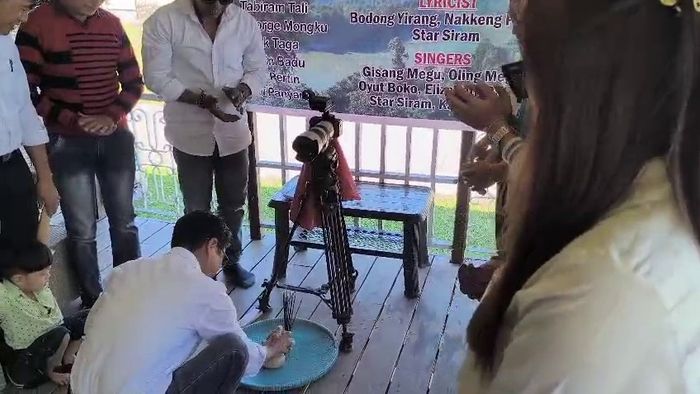Arunachal: Film on rural womanhood begins production in Pasighat
Production begins on a film highlighting rural womanhood in Pasighat, Arunachal Pradesh. The project focuses on authentic storytelling using local talent to showcase women’s lives and challenges

- Nov 17, 2025,
- Updated Nov 17, 2025, 10:08 PM IST
A new regional film project highlighting the often-overlooked burdens carried by rural women moved into production on November 17 as Ane Siang Production formally launched the shoot of Nanne in Pasighat.
Producers said the film centres on a woman who delays her personal aspirations, including marriage, to support her family—an issue common in many villages across Arunachal Pradesh and Assam. The story draws on real experiences of girls and women who balance social expectations with economic and domestic responsibilities.
Writer-actor Liibo Jamoh, who has scripted the film’s story and dialogues, said the project aims to push conversations about why many women “choose responsibility over desire” and how those choices shape communities. Jamoh is co-directing alongside Dinesh Kaman.
The launch brought together the full cast, including Orik Taboh, Karsing Ripuk, Tabiram Tali, George Mongku, Yatok Taga, Ainaw Badu, Sobi Pertin and Bibi Panyang. Music contributions will come from well-known regional singers Gisáng Megü, Oling Megu, Oyut Boko, Elizabeth Ratan, Star Siram and Kaling Taloh, while lyrics are being crafted by Bodong Yirang, Nakkeng Perme and Siram. Sunita Chungkürang is handling make-up.
Kaman described the production as “a timely attempt to document the realities of women whose sacrifices rarely reach the screen”. The team expects the narrative to resonate strongly with audiences from the Adi and Mising communities, where the themes are widely recognised.
Filming has now begun, with the makers positioning Nanne as a socially grounded drama intended to broaden discussions on empathy, respect and the hidden labour that sustains many households in the region.